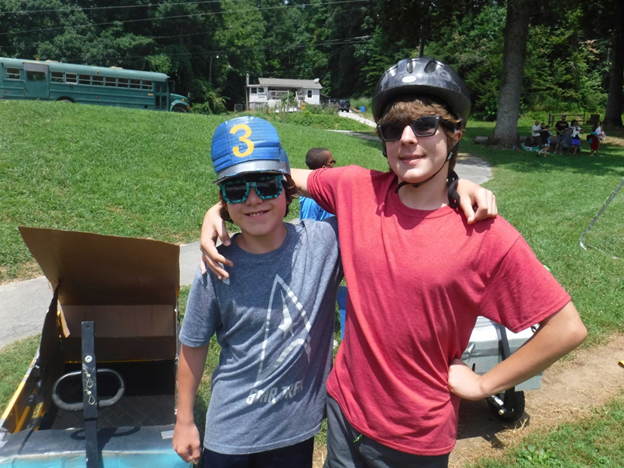Playing crazy huge games, performing silly skits, camping out with new friends – these are some of the great experiences kids look forward to at summer camp. Children with ADHD especially need time to relax, play and expend energy after months of school, and camp can be an ideal environment for them. But their parents have justifiable concerns about whether camp is ready to give their child a positive experience.
Fortunately, there are both camps exclusively for children with ADHD, and traditional camps that have worked to be welcoming to ADHD campers as well as those without. Parents just need to do their homework to ensure a good fit and good outcome for all. Here are five things to look for in a summer camp for your child with ADHD.
1. Camper-to-Staff Ratio and Group Size
Camp is all about making new friends and trying new things. Children with ADHD can be easily distracted by both and do better with gentle coaching to stay on track (sticking with a new friend long enough to develop a bond; staying focused on the safety talk before rock climbing). When they are in a small group (4-8) with at least 2-3 staff, they can receive the attention they need at times and are less likely to be overwhelmed by the activity around them. And their staffs have a chance to get to know them better, and be more effective coaches. No one is lost in the shuffle.
2. ADHD-Specific Staff Training
Staff should be provided with a solid understanding of how the ADHD brain works differently than others, what that looks like, and how to best work with their campers. At least a half-day training on ADHD paired with targeted discussions in each other area throughout training (morning routines, meals, activities, safety, etc.) giving them specific approaches and tools are needed for counselors to work effectively with their campers with ADHD.
3. A Structured, High-Interest, Flexible Schedule
Children with ADHD do best with clear boundaries, structured schedules and straightforward goals. An ADHD camp will have a full schedule, which is shared with campers, so they know what to expect and what is expected of them. The best activities are high-interest, whether because they are brand new, high adventure, or related to a favorite topic. When the child with ADHD is engaged, (s)he can stay involved for long periods and come away with a sense of accomplishment.
4. Positive Approach to Behavior Management
Good ADHD camps understand that their campers want to do well, but sometimes struggle with rules and social interactions. Look for a camp that sets up its campers for success through quick reviews of rules, one-on-one coaching and the chance to solve issues and try again. Your child may need to take responsibility for actions, but should not feel punished or shamed; counselors should view these moments as opportunities for growth.
5. Overall Philosophy Toward ADHD
Each camp may have a different approach, but look for an overall understanding and embrace of ADHD. Good elements include: celebrating and building on the strengths that come with ADHD; giving kids room to move in all activities; setting clear boundaries; seeing issues as growth opportunities; allowing noise, silliness and good plain fun throughout the day.
Of course, the camp should have a solid medication management plan, serve healthy whole foods, and follow safety best practices in all areas. Be sure to check on all of these areas as well as others of concern to you, such as level of communication with parents. But start with discovering whether the camp you are calling really “gets” kids with ADHD and truly appreciates their gifts and their uniqueness.
Choosing an ADHD Summer Camp for your child can be a stressful process but it can lead to one of the most amazing summer experiences for your child and build memories that will last a lifetime.











